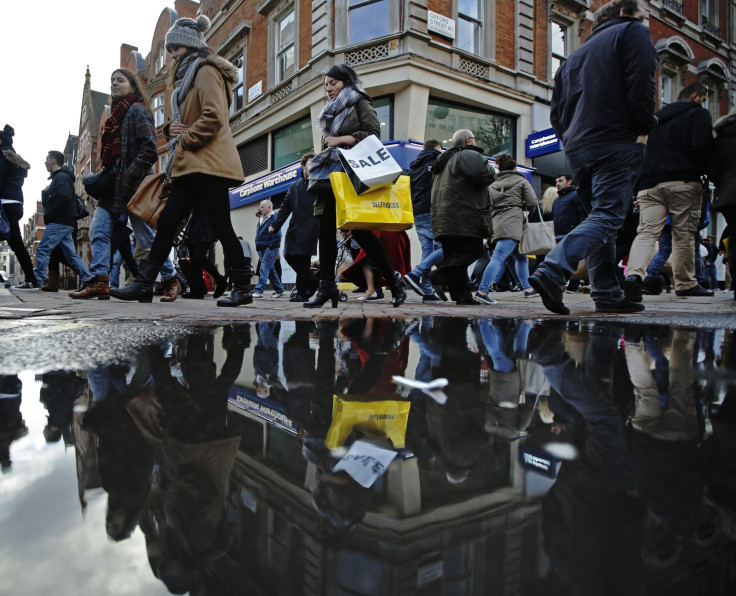UK Cost of Living: Families Face 'Lost Decade' of Real Wage Growth

UK families face a "lost decade" of real wage growth, which will keep consumer spending down, according to the Ernst and Young Item Club.
The research, which analysed Treasury figures, found that annual wage growth over the next three years will remain well below the 4.5%-5% rates typical before the financial crisis of 2008.
The report warned that this will lead to a slowdown in the pace of consumer spending growth, which is only expected to increase by just over 2% next year and in 2016.
EY Item Club said this is a significant reduction on the average annual growth rate of 3.7% seen in the pre-crisis decade.
"Total household incomes have strengthened because more people are in work but individuals do not have extra money in their pockets," said Martin Beck, senior economic advisor to the EY Item Club.
"Real wages are being held back by strong growth in the supply of workers and the fact that firms are facing increased non-wage costs, such as new pension schemes.
"We expect this trend to continue for several years to come and it will be mirrored with a slowdown in consumer spending growth."
The research also forecasted that the outlook for food retailers will remain challenging.
Consumer spending on food and non-alcoholic drinks is expected to grow more slowly than consumer spending overall, with growth averaging 1.5% per annum over the next five years.
"The upturn in the economy alone is not going to restore the fortunes of the retailers," said Julie Carlyle, head of retail at EY
"Instead new business models, better reflecting changing consumer shopping habits, need to be embraced.
"More than ever before consumers are looking for real value for money and retailers need to recognise in order to convert increased spending into profits."
The figures come after the Office for National Statistics regular pay for UK workers grew at a rate of 0.7% in the three months to July, against Consumer Price Index inflation of 1.6% in the year to July.
© Copyright IBTimes 2024. All rights reserved.






